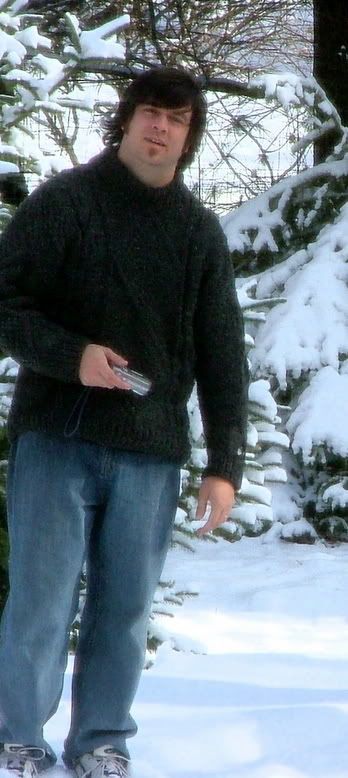What's the Secret, Max?

Well it was Christmas Night and I was grateful for all of my faraway friends, but because you’re far away, and I’m here, and because I had just arrived back from Michigan, and because I was the only one who REALLY needed to see The Life Aquatic on its (Midwest) opening day, so at 10:10 it was me and a completely packed theater full of strangers watching Wes Anderson’s newest movie.
In the first five minutes of The Royal Tenenbaums, Etheline writes a bestseller –
Family of Geniuses
And having been raised in a family of geniuses myself, I’m starting to recognize some of the fundamental contours that Wes Anderson has been describing in the last three of his four movies.
I didn’t quite see it fully until this film, but as the shape of his world becomes a little more clear to me, I understand more deeply and profoundly why I love this world, yearn for it, and feel a little bit like I came from it myself.
Here’s the archtyal myth:
Max in Rushmore, all of the Tenenbaum children (and even, somewhat, by proxy, Eli, across the street) and now Steve Zissou, too….they are all passionate creative souls who have found what they loved and chase it with all of their heart. Etheline’s book, Family of Geniuses is no accident either, because in the theology of Wes Anderson Gospel – it is some fiercely optimistic matriarchal figure whose love, belief and steadfastness propels these geniuses toward their “Rushmore.”
“What’s the secret, Max?” Bill Murray’s character asks as he pulls into Rushmore Academy. Max shrugs. “Find something you love and keep doing it for the rest of your life.”
From here the myth diverges into different complications and obstacles – coming of age, dealing with family and now – on board the Belafonte – the complications and obstacles are the more complicated issues of middle age:
How do the wounds of abandonment inhibit our genius?
How do our losses stymie our potential?
How do we sustain the genuine essence of our story once we’ve seen through the story we’re telling ourselves?
How do we find genuine-ness or a spark of authenticity once we understand the loop of gesture and repetition that defines our life patterns?
In The Life Aquatic, there are moments where it seems like the heightened realism of Anderson’s voice is going to rise too high…that the quirky features of the world will become, as Jane Winslett-Richardson accuses Steve of being, too manufactured, too over-the-top.
But if you can believe and put your faith in the story – I think that the questions that the movie raises and the complicated answers that emerge, are more than a little satisfying.
Because what’s at stake seems higher and higher for Wes and for all of us who believe in the code:
Do what you love.
Do it more passionately than everyone else.
No matter how weird or quirky or esoteric that makes you.
And hopefully the love of a few devoted friends and family should be enough to sustain you.
The older we get and the more difficult it becomes to stay true to this code -- whether we’ve written a hit play or won a Wimbledon match or made a winning documentary, or whether our losses and our regrets and our shortcomings threaten to silence our voices all together....or the ugly stumbling shortcomings start to crowd our vision of our self, our world. Boring and reliable pragmatic realism threatens to inflect our entire diction…
And little rebirths of hope, no matter how braided they are with loss – go a long way.



1 Comments:
How do we sustain the genuine essence of our story once we’ve seen through the story we’re telling ourselves?
Absolutely - cut me deep and drive hard.
Post a Comment
<< Home